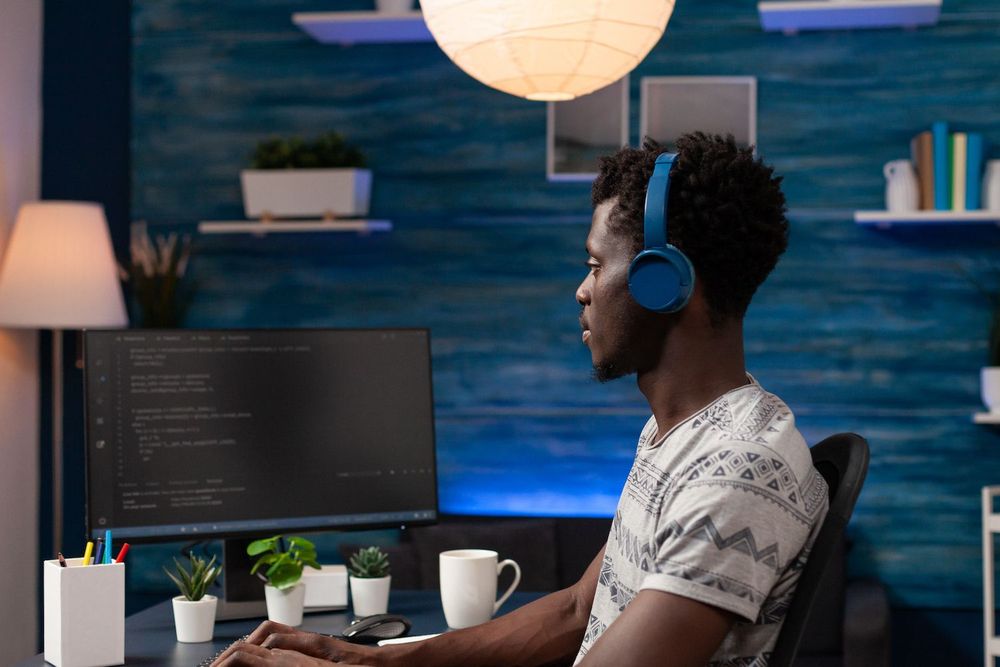Two brothers turned their struggles into family business into the most recognized business
When they were children, Kuni and Tomo Hijikata believed their business could be worth fighting for. The company was established in Nagoya, Japan back in 1936 in the year 1936 The Hijikata family's casting foundry was known for its precision. It was however, at the time it reached the beginning of the 90s , the future of the company was in doubt. Since they were the inheritors to the long-running company, Kuni and Tomo knew they had a responsibility to keep their casting iron craftsmanship intact.
The two brothers worked at Toyota as well as Toyota Tsusho, but they saw a potential to design cast iron cookware that would last generations -- so they both quit their job and devoted their time to making sure that the family's business was saved. Brothers were trained in the floors of the foundry, as craftsmen, and in 2010, Vermicular was created. The first time their cast iron pot was brought on the market, the demand overtook the waiting list of 15 months mostly because of the enthusiastic word of mouth.
10 years on, and more than a decade later, Vermicular is now a decade old. Vermicular group has defined its goals for global expansion. They currently sell their products to customers in China and China, the U.S., China, as well as beyond. To better communicate the worth of their cookware to foreign markets that aren't yet available, Vermicular has invested heavily into the production of video that promote their products. "Without the videos , we'd be facing a much tougher expansion of our business," says Mark Hayashi the Director of Vermicular's U.S. Office. We talked to Kuni, Tomo, and Mark to get a better understanding of Vermicular's plan to expand internationally using video. You can watch their video aboveand listen to their entire interview.

"We often consider our video assets as be the extension of our business' image and the products we offer. The power of video is more than just the written word. And this is especially true in the kitchen." Mark Hayashi, Vermicular's Head of the U.S. Office
How did you develop your product?
Tomo: "I thought that we could make use of our company's casting iron know-how to make enameled cast iron vessels with lids that are perfectly fitting. But there was no precedent in Japan. We were aware that we'd need to come up with the concept ourselves.
To master everything we could Kuni and I sat on the ground of the foundry. Kuni became a casting craftsman and I developed into a precision machine technician. It took us three years and 10,000 repetitions to build a model which achieved our goals."
What was the procedure in establishing your brand's presence to Japan?
Mark: "Brand storytelling has always been at the heart of our communication and marketing strategies. The telling of stories about our distinctive history and dedication to quality has had a positive impact on our audience of choice and helped us feel more connected to them on a more personal scale.
We began by creating videos that reflected our brand purpose. If we're creating an advertising story or how-to-product video, make sure that the content is reflective of our values. At the start, we didn't focus so specifically on the sales aspect in the short period, but instead on increasing customer satisfaction over the long term from a standpoint."
What's been the biggest problem in developing Vermicular? Vermicular brand beyond Japan?
Mark: "Our biggest challenge was the difficulty in communication. When we first launched Vermicular in the year 2010, we've faced a number of difficulties. The Vermicular brand was launched in the year 2010, has established an excellent brand name within Japan but none of that was transferred to outside Japan. All we needed to build was the Vermicular brand entirely from scratch this was difficult and required a lot of preparation before launching."
What did you put your money into in the beginning when you were trying to establish an international reputation of your company?
The content you have created to promote your business is beautiful. How did you achieve this level of excellence?
Mark: "We partnered with the brand agency to create the branding video and we had a lengthy time coming to an agreement on the 'look and feel of the lighting, the casting and the food and clothing style. Also, we spent a lot of time bouncing between us on making storyboards of the video and storyboards, which served as the basis throughout the entire process including shooting days.
With so many people involved during the shooting, there are frequently unexpected delays that can create delays at start. A solid narrative that is supported by a well-defined shooting schedule can help create clear expectations and guides everyone involved during the shoot in the same direction. Our storyboards not only act as a clear outline of our hectic shoot times, they also helped us overcome post-production challenges. I think this step is crucial for smaller companies that have a small budget."
What are the most suitable places to invest the money you earn in order to continue expanding?
Mark: "Our hypothesis was creating a product video along with a how-to-video series would allow our customers to experience the maximum capabilities of our cookware that is induction. In our statement, our goal doesn't end once our customers make purchases of our cookware.
Our goal is to make sure that our customers be able to cook with the Vermicular cookware in the longest time possible. We've noticed clear results of these instructional videos , as they help in the education of cookware users, as well as help the customers gain greater understanding about the use of the cooker."
Video has been instrumental in the establishment of a brand reputation for Vermicular all over the world?
Mark: "Definitely! Many. The way we think about our videos is as an extension of our brand and products. Although we may not have the largest budget, but we have a lot of time to find the narrative and format of our videos that will be most effective in telling our stories. Visuals are always more effective than writing. This is true especially for cooking."
What are the reasons the team use to host and embed their video content?
Mark: "We prefer for numerous reasons. But the most important is the ability for embedding video. It's clutter-free and free of advertisements. The user experience is seamless across the site and safeguards the "touch and feel" that our brand is known for.
Additionally, we can send ideas for our content with teams from Japan and the U.S. and Japan, which makes it simple to get feedback, even when we're separated by 5,000 miles."
What's the next step for Vermicular?
Kuni: "More innovative products are coming soon and we'll be expanding the range of products we offer in and across the U.S. and across various Asian countries."
Mark: "We are currently developing our strategy for video content that spans from branding video content featuring diverse chefs and farmers to explain videos, how-to videos and more which will be the most important assets we can have in the future."
Article was first seen on here
